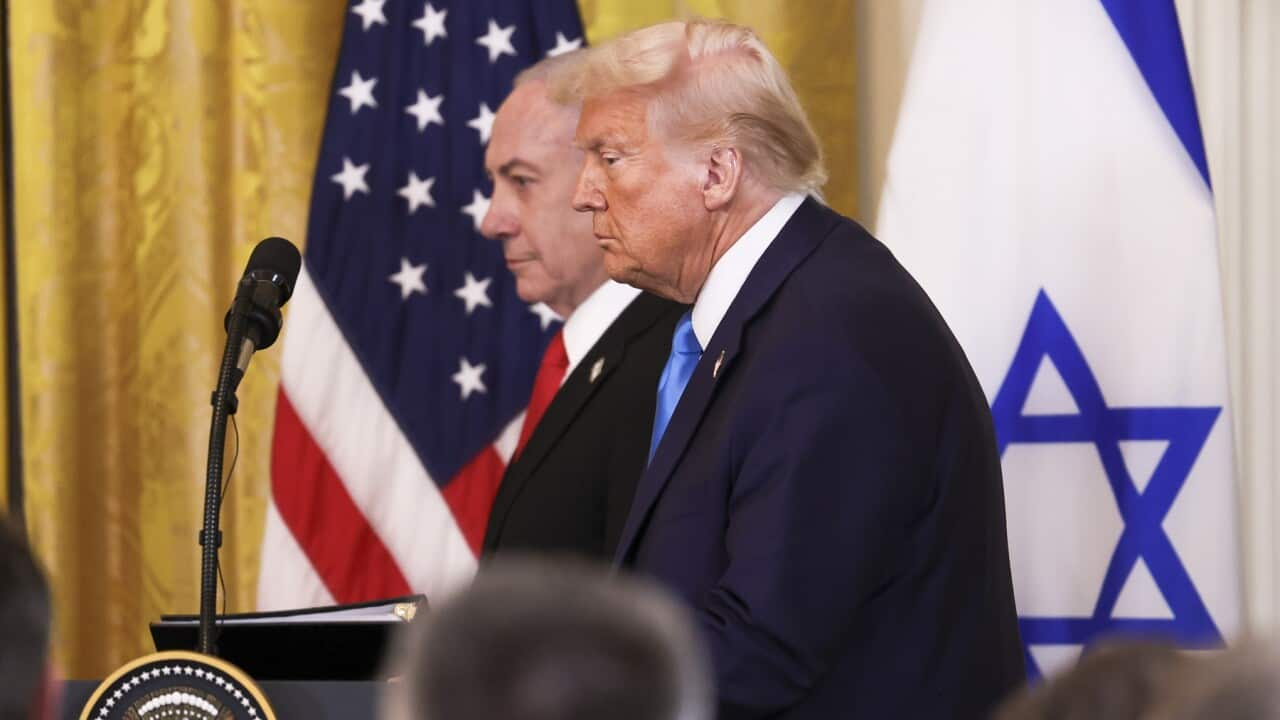TRANSCRIPT
About the size of Western Australia, the Democratic Republic of Congo* is the largest country in Sub-Saharan Africa; and it is also the site of one of the world's longest-running conflicts.
The United Nations says 7.2 million are currently internally displaced.
Of that group, 738,000 people became displaced in the last month.
The country is home to rich reserves of mineral resources - including gold, cobalt, copper and coltan, critical to much of the world's technology such as mobile phones.
That has fuelled conflict over three decades, with 120 armed groups and Congolese security forces active in the eastern DRC.
The country's first civil war erupted in 1996 as a spillover of the 1994 Rwandan genocide.
Today, Congo's borderlands with Rwanda remains one of the continent's deadliest conflict zones.
After years of dormancy, another flashpoint: the advance in eastern Congo by rebels belonging to the March 23 Movement, more commonly called M23 [[Em-twenty-three]].
In Goma, the UN's Vivian van de Perre says 2,900 people have been killed in the fighting to take control of the eastern Congolese city.
"All exit routes from Goma are under their control. And the airport also under M23 control is closed until further notice. The escalating violence has lead to immense human suffering and growing humanitarian crisis. The UN mission in DRC (MONUSCO) does operate in a very challenging environment. Key infrastructure in Goma are overwhelmed, with both UN personnnel and Congolese seeking shelter in our premises. However, our facilities were not designed nor are they staffed for large-scale long-term accommodations."
For 65 years, since the DRC's independence from Belgium in 1960, UN agencies and peacekeepers have had a presence in the country.
UN experts say Rwanda has as many as 4,000 troops in eastern Congo are supporting the M23 advance.
Rwanda's President, Paul Kagame, has repeatedly denied any involvement in supporting the M23 rebels.
The DRC accuses Rwanda of backing M23 to exploit mineral resources, while Rwanda claims self-defence to protect ethnic Tutsis.
Gaining control of eastern Congo, for Rwanda and M23, is seen as an attempt to protect the Tutsi population in the region.
The political leader of M23, Corneille Nangaa, has held a stadium rally in Goma in attempt to reassure residents by promising safety.
In front of a crowd of thousands, he says the city has been liberated from what he called poor governance.
He told Al Jazeera, he does not have a sinister motive.
"We are fighting for Congo. We are not fighting for mineral. We are not fighting for anything (like that)... and what you said balkanisation (dividing a region or territory into smaller factions based on ethnic, religious, or political differences). We can choose to fight. You and me because we have a problem. We can also choose just to talk. We are open to any discussion. But the discussion should be between Kinshasa (DRC) regime and our organisation."
This resident is among tens of thousands who have fled the fighting in Goma, finding refuge at an overcrowded refugee camp.
"I lost my son who was shot and killed while the bandits took his phone. He refused so they shot him and took the phone. My sister's child cannot be found. She's three years old, Her name is Christelle. She also disappeared and we don't know where she is."
United Nations Secretary-General Antonio Guterres says once again it is civilians who are caught in the crossfire.
"Thousands of people have been killed, including women and children, and the lives of thousands have been forced from their homes in the eastern DRC. We also see the continuing threats by other armed groups, either Congolese or foreign. All of this is taking an enormous human toll. We have countless reports of human rights abuses, including sexual and gender-based violence, forced recruitment, and disruption of lifesaving aids."
He says there will be an opportunity for advancing a solution for peace at a crisis summit in Tanzania of the East African Community and the Southern African Development Community.
Mr Guterres says the message to leaders and diplomats is simple:
"Silence the guns. Stop the escalation. Respect the sovereignty and territorial integrity of the Democratic Republic of the Congo. Uphold international human rights law and international humanitarian law. There is no military solution."
He also plans to travel to the Ethiopian capital, Addis Ababa, next week to participate in an African Union Peace and Security Council summit to discuss the DRC.
The capture this week of Nyabibwe - in the eastern province of South Kivu - takes the M23 rebels a step closer to the provincial capital Bukavu some 70 km south - a city the rebels said last week they had no intention of capturing.
Hundreds of residents in Bukavu have gathered for interfaith church services to pray for peace.
At Saint Michel Cathedral, community leader Therese Mema Mapenzi says the prayers were organised by local religious leaders and officials to unite communities, amid fears the violence could spread further.
"This is our role to play. We have already advocated, taken action, and supported displaced people. Now, we add prayer to these efforts—like Esther, like the Virgin Mary. We kneel together, united, to ask the Lord to touch the hearts of our leaders, Rwandan leaders, and all national and international leaders. We believe God will hear us, because nothing is impossible for him—especially now that we have set aside our divisions to come together."













